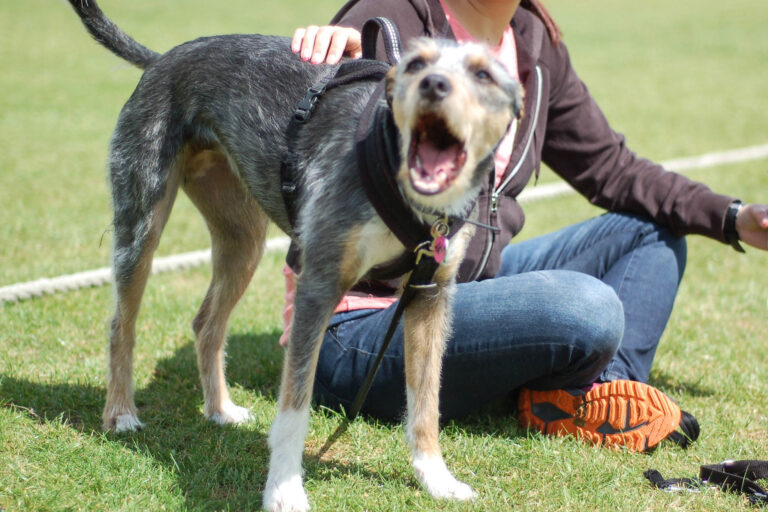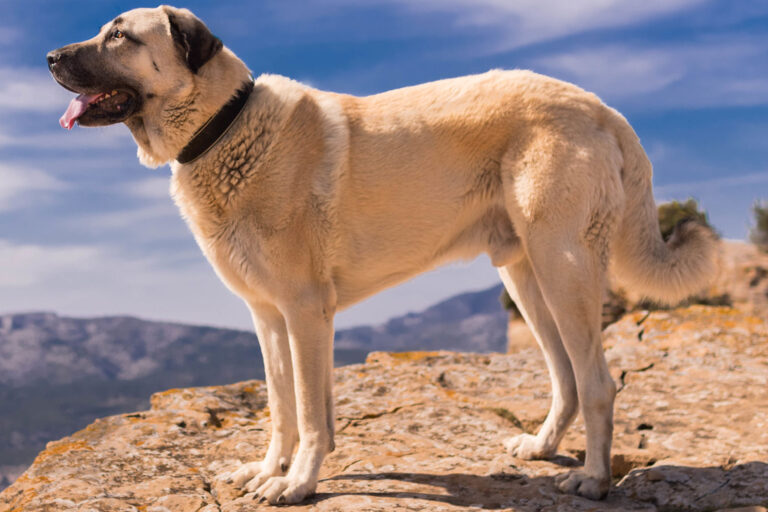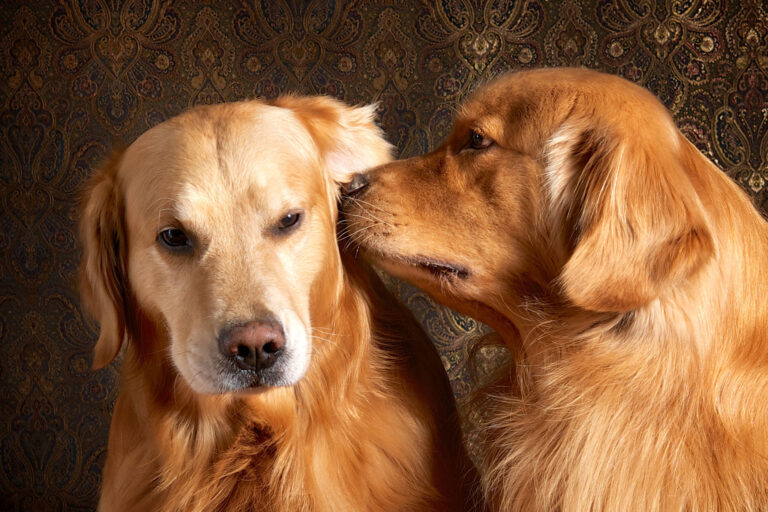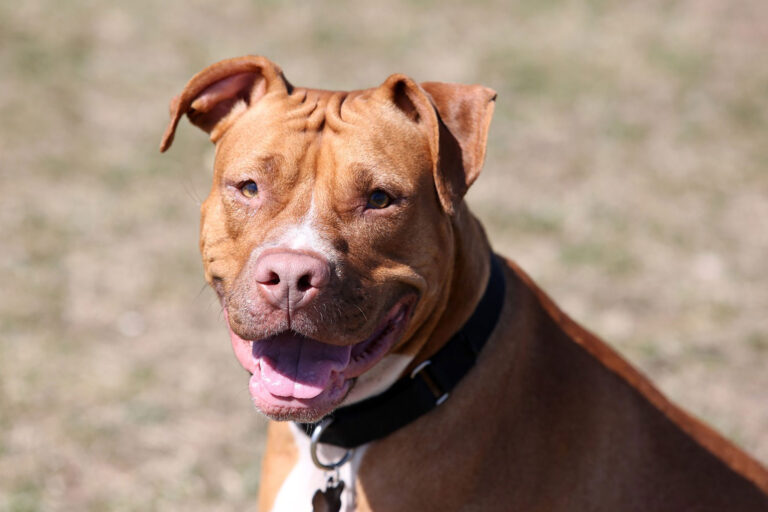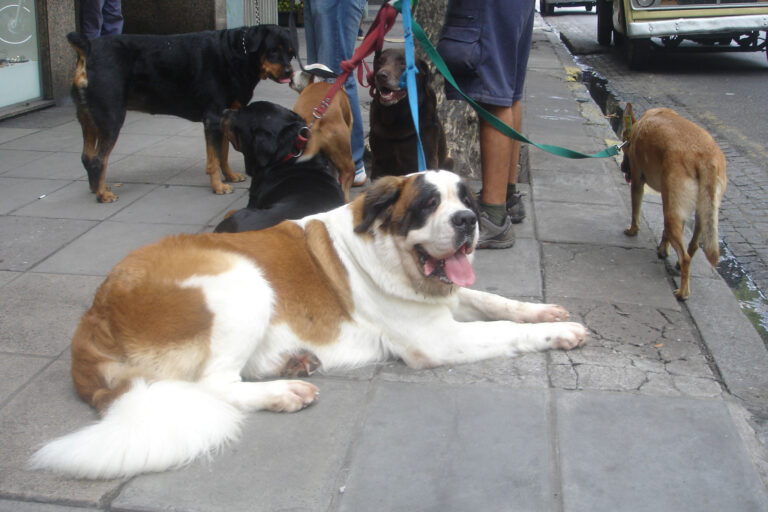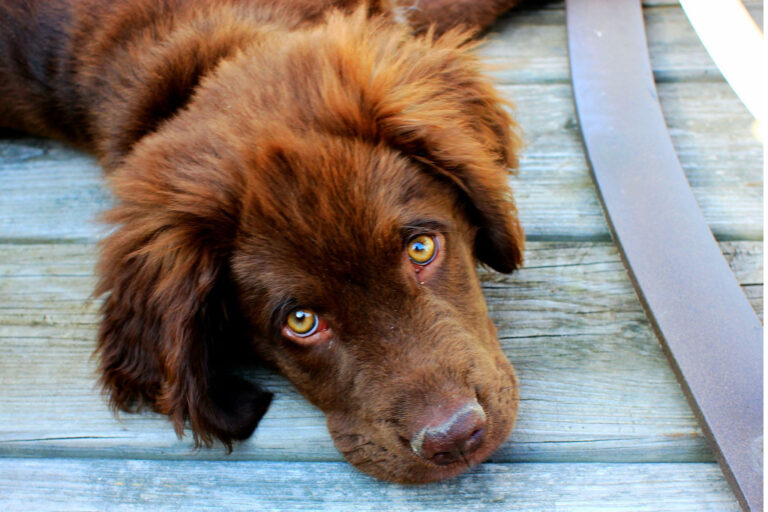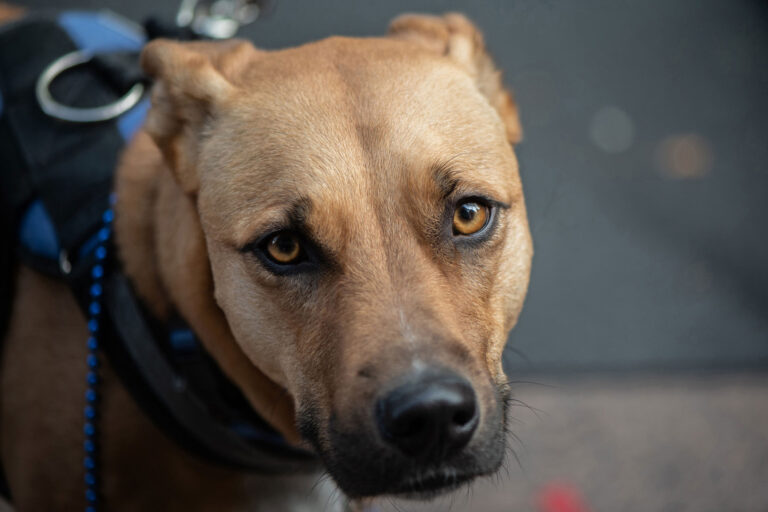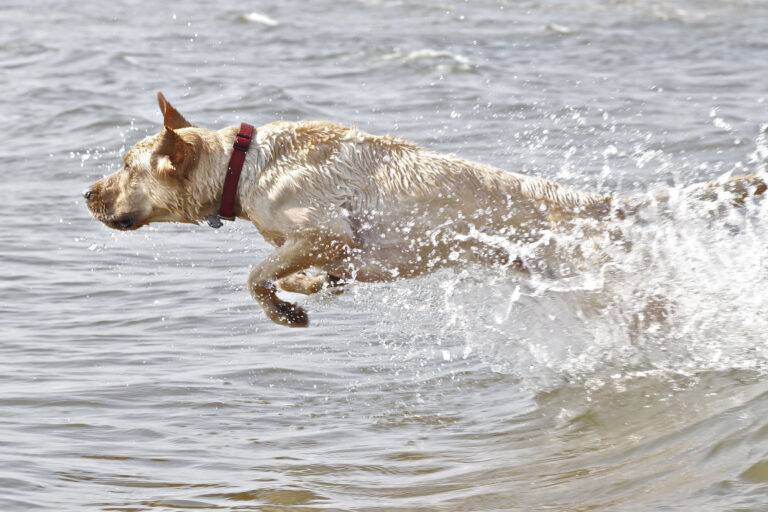When food is contaminated with bacteria, viruses, parasites, or their toxins, it can cause illness in people. This is how we define food poisoning. Symptoms of food poisoning that most individuals experience include nausea, vomiting, diarrhea, fever, and stomach discomfort, and they usually appear a few hours after consuming the contaminated food. The “joy” of a couple of these symptoms when their dog eats something he shouldn’t have certainly been experienced by everybody who has ever had a dog. Based on the fact that our pets are displaying the same symptoms, I assume that food poisoning is also the cause.
Can Dogs Get Food Poisoning?
To put it simply, the answer to this seemingly easy question is both yes and no. Dog food poisoning is a little more complicated. Often, improper food that isn’t sitting well may be the cause of the problem, rather than a genuine case of food poisoning. The term “garbage gut” is a term used by veterinarians to describe this illness with fondness because dogs are known to love prohibited treats. However, there are still a few things that can actually give dogs food sickness.
Dog Food Poisoning: The Real Causes
When our animal family members are outside or inside the house, we need to be conscious of what they have access to. The following are some genuine causes of food poisoning in dogs:
Garbage and Compost
Our dogs may regard rubbish to be a canine delicacy, however these polluted materials should be avoided by our pets. Any bad or moldy food can lead to food poisoning in dogs. As a result, you should keep your kitchen compost bucket and outdoor compost pile out of reach of dogs. I once treated a dog that passed away after raiding the neighbor’s compost pile. Garbage can also contain bacteria that cause more serious infections.
Dead Animals
If you see dead or rotting objects in the woods or by the side of the road, you should make sure your dog cannot get their hands on them. These products may contain dangerous germs or parasites that can upset your stomach and, in certain situations, lead to potentially serious diseases.
Fecal Content
Any type of feces, which so many dogs seem to find quite attractive, can seriously upset a dog’s stomach.
Recalled dog food and treats
Keep a look out for recalled dog meals or treats, since they might make your dog sick. For information about pet food recalls, see the FDA’s website.
Food that has not been cooked completely
Although it is a recent diet trend, raw/undercooked meat, eggs, and bones can cause serious disease if not handled correctly. In addition to causing food poisoning, bones have the potential to develop foreign entities that must be surgically removed.
Symptoms of Dog Food Poisoning
Food poisoning symptoms in dogs typically include vomiting, diarrhea, loss of appetite, lethargy, and dehydration. Some animals may exhibit neurological symptoms such as loss of coordination, tremors, or, in severe situations, seizures and collapse. The symptoms and intensity may differ depending on what your dog ate, how much, and how sensitive they are. Vomiting and diarrhea are perhaps the most prevalent signs of food poisoning in dogs.
What Can You Do for Food Poisoning in Dogs?
When your dog starts vomiting, try fasting them for 24 hours—only provide water. If they continue to vomit at that time, they should see a veterinarian. If the dog does not vomit throughout the 24-hour fast but then vomits again thereafter, they should consult a veterinarian. If your dog starts vomiting water, appears unhappy, or exhibits any neurologic indications, take them to an emergency clinic or your veterinarian right away. It is usually safer to get your pet examined by a veterinarian. When treatment begins early, it is simpler, more effective, and most likely less expensive. Furthermore, we can spare your dog a lot of belly grumbles.
Toxic Human Foods for Dogs
Many human foods can cause gastrointestinal distress in dogs without actually causing food poisoning. Some human foods might even create major health problems, so it’s always a good idea to talk to your vet about your dog’s eating habits.
Dogs can get food poisoning from the following items:
- Alcohol
- Chocolate
- Coffee
- Macadamia nuts
- Nuts
- Milk/dairy
- Onions, chives and garlic
- Salt and salty snack foods
- Cat food (very high in fat)
Small doses of some of these substances could be harmless, whereas small doses of others might be fatal. Ensure that you securely store all of these things, including food for humans, out of reach of dogs.
The Dangers of Table Scraps and Sidewalk Snacks for Dogs
Not every treat in the realm of canine friendship is made equal. Just as people have different dietary tolerances, so do our four-legged companions. For some dogs, an innocent snack could be the source of problems, but not for others.
When you take your pet on leisurely walks, it’s important to be mindful of what they could try to eat. The hazards are numerous, whether it’s an alluring sidewalk snack or a tantalizing slice of pizza poking out from a garbage can that has been abandoned.
Sharing meals with their pets is something that many well-meaning pet owners love doing, but sometimes what starts out as a kind gesture can have unexpected effects. Table scraps are quite dangerous for a dog’s digestive tract since they are high in fat and spices.
Even an apparently harmless treat like a wedge of cheese or a piece of chicken skin can cause pancreatitis, an inflammation of the pancreas in dogs that are sensitive to fatty meals. This illness presents with symptoms similar to those of food poisoning, however it frequently has far more serious consequences that might be deadly.
At these risks, you should ignore the pleading eyes and outstretched legs for human food. Choose a balanced, veterinarian-approved dry food to protect your pet’s health.
If you would want to start your dog on new meals, you should always see a veterinarian. It’s possible to protect your special someone from the negative effects of overindulgence and create a better, healthier life for them by putting caution and care first.
Tips for Preventing "Garbage Gut" in Dogs
In the complex web of pet parenting, it is vital to prioritize the welfare of our animal companions. Amidst the numerous obstacles encountered, a threat that is frequently disregarded resides: the infamous “garbage gut.” But do not be alarmed; we can protect our cherished friends from impending danger by being alert and proactive.
Secure Your Surroundings:
Begin by fortifying your fortress. Safeguard your home by stowing away anything deemed unsafe, locking up the trash, and abstaining from leaving tempting morsels unattended on countertops. A simple act of diligence can prevent potential disasters.
Communication Is Key:
When hosting guests, impart upon them the importance of refraining from feeding table scraps or any human foods to your canine companion. A gentle reminder can avert unintentional mishaps and foster a harmonious environment.
Scour Your Sanctuary:
Take stock of your outdoor haven with regularity, ensuring no hazardous treats linger within reach. Prior to venturing into uncharted territories, leash your furry friend—providing both guidance and restraint to thwart potential threats.
The Power of Training:
Enlist the aid of obedience training to instill vital commands such as “drop it,” empowering your dog to relinquish any harmful discoveries. With patience and perseverance, you equip them with the tools needed to navigate the world safely.
Know Your Canine Companion:
Embrace the unique quirks and sensitivities of your furry family member. While some boast ironclad stomachs capable of weathering any culinary misadventure, others may succumb to the slightest gastronomic transgression. By understanding their preferences and limitations, you pave the path to a healthier, happier existence.
In the grand tapestry of pet ownership, the bond shared between human and hound is one of mutual trust and understanding. Let us embark on this journey with diligence and empathy, ensuring our cherished companions traverse life’s highways unscathed by the perils of “garbage gut.”

Dr. Carolyn Stafford’s route to veterinary medicine demonstrates her steadfast commitment and enthusiasm for furthering the science of anatomic pathology.
Subscribe my Newsletter for new blog posts. Stay updated from your inbox!


